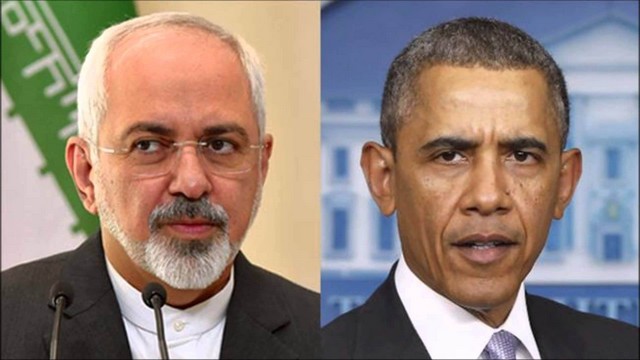By Seyed Hossein Mousavian
New sanctions against Iran will backfire on efforts to restore stability in the Middle East
When the nuclear negotiations between Iran and the P5+1 world powers kicked off with renewed hope after Iranian President Hassan Rouhani’s inauguration in August 2013, Iran’s Supreme Leader Ayatollah Ali Khamenei was quick to endorse the diplomatic efforts but also stressed that the “U.S. government is not trustworthy.” Indeed, the main impediment to normal relations between Iran and the United States since the 1979 Islamic Revolution has been the mutual mistrust between the two sides. Iran, for its part, has a long list of legitimate grievances. The U.S. supported Saddam Hussein in the conflict that began with his invasion of Iran in 1980, sparking an eight-year war that cost the lives of over 300,000 Iranians and resulted in an estimated $1.19 trillion in damage to both sides. During the war, the Iraqi army used chemical weapons against Iran, killing and injuring over 50,000 civilians.
The Iran nuclear talks saw for the first time Iran and the United States engaging in serious negotiations at the highest levels after over 35 years of hostility. An Iranian foreign minister and a U.S. secretary of State sat down and directly talked with one another to resolve one of the most pressing international crises.
In terms of abiding by its commitments under the nuclear deal, known as the Joint Comprehensive Plan of Action (JCPOA), Iran has done a commendable job. According to U.S. Secretary of State John Kerry, Iran has implemented its commitments under the agreement in a timely manner, including recently completing the process of shipping out of the country its 11,000 kg stockpile of low-enriched uranium. Neither the IAEA nor the P5+1 group of nations have ever publicly found Iran to be in violation of either the Nov. 2013 interim deal or the JCPOA.
However, there have been some distressing developments as the JCPOA’s “implementation day” has approached. The more Iran moved to complete its commitments, the more the U.S. Congress has in parallel explored new ways to impose sanctions on Iran. One notorious example is recent visa legislation, which would discourage the flow of foreign investment and tourism. Even worse than the visa bill, there are also now reports of multiple other Iran-related bills circulating in the U.S. House of Representatives that would undercut the nuclear deal. One seeks to limit the president’s authority to waive sanctions; another to prevent sanctions relief for Iranian banks that the JCPOA mandates.
From the Iranian perspective, the JCPOA is a test of whether or not it can trust the United States. One school of thought in Iran holds that America’s policies and nature are based on bullying and not rationality. Their contention is that if Iran shows flexibility towards the United States, it will only encourage more aggressive behavior towards Iran. Thus, Iran must pursue a tit-for-tat strategy and raise the costs of pursuing aggressive actions against Iran.
The other prevailing school of thought in Iran maintains that you can only deal with the United States if you have substantial bargaining chips. “If it were not for the 20,000 centrifuge slap from the previous government [Ahmadinejad] they [the P5+1] would have never sat at the negotiating table,” former chief of Iran’s Revolutionary Guard, Mohsen Rezaei has stated. In response to the recent U.S. move against Iranian missile capability, Rezaei called for Iran to develop missiles with a range of 5,000 km.
The fate of broader U.S.-Iran cooperation rests on whether or not the JCPOA is successfully implemented. The two sides are currently at a critical juncture. If the United States proceeds with expanding sanctions on Iran, even if it does so under the umbrella of terrorism or human rights and does so in ways that do not directly violate the JCPOA, it will make the JCPOA worthless for Iran. Pursing this approach now that Iran has almost completed its commitments under the JCPOA will vindicate the predominant line of thinking in Tehran that the United States cannot be trusted.
The Iranian Revolutionary Guard’s recent goodwill — releasing 10 American sailors that Iran said entered illegally into its territorial waters — is a clear example. The White House confirmed the “new lines of communication with Iran established during nuclear negotiations were key to getting 10 U.S. Navy sailors released quickly.” I doubt if the U.S. government would do the same if two Iranian boats inadvertently drifted into U.S. waters.
The bottom line is that the Middle East is on the verge of total collapse and we need cooperation and not more confrontation. The recent strife between Saudi Arabia and Iran, regional powers that have commanding influence in the Sunni and Shia worlds respectively, has made the Middle East even more volatile. By pursuing legislation to sink the Iran deal, the U.S. Congress will be adding fuel to the fire. However, the promise of the JCPOA — that the United States and Iran could move on to cooperate on fighting ISIL and on solutions to the conflicts in places like Syria, Iraq and Yemen — will be lost. U.S. decision makers are faced with a stark choice — properly implementing the JCPOA or having to contend with a far more precarious situation in the Middle East. But the choice is theirs.
Ambassador Seyed Hossein Mousavian is a research scholar at Princeton University and a former spokesman for Iran’s nuclear negotiators. His latest book,Iran and the United States: An Insider’s view on the Failed Past and the Road to Peace, was released in May 2014.
14 January 2016

